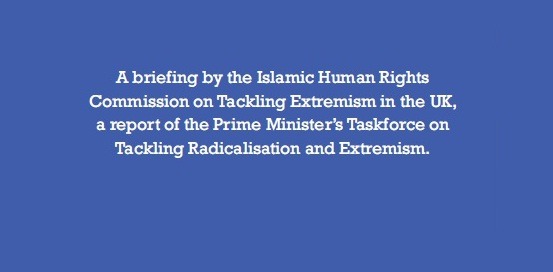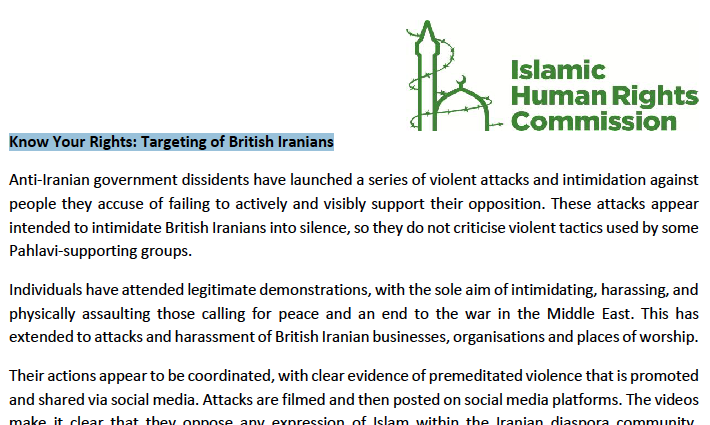On 4 December 2013, the UK government revealed its report Tackling Extremism in the UK, a report of the Prime Minister’s Taskforce on Tackling Radicalisation and Extremism (TEUK).
TEUK’s provisions have been heavily criticised, and this briefing outlines some key concerns identified by IHRC. Some of these concerns will be dealt with in more detail by further briefings, articles and reports in the coming weeks and months. The TEUK is yet another stage in a disastrous strategy that demonises Muslims in the UK. Not only is such demonization unjust it facilitates both the implementation of further draconian laws and policies that ostensibly target Muslims, but also lead to societal hatred being expressed against Muslims.
Read the Press Release here.
Read a summary below.
Download the report IHRC Response to Tackling Violent Extremism in the UK, a government report.
SUMMARY
1. Since the turn of the millennium the British government has been engaged in an unprecedented legislative programme to combat what it calls terrorism but which also includes ideological and physical threats to its overseas interventions.
2. Running parallel to this has been a wide-reaching anti-terrorism strategy called CONTEST , a key component of which is the PREVENT programme designed to eradicate beliefs amongst British Muslims that run counter to British foreign policy objectives in Muslim-majority countries. Tackling Extremism in the UK (TEUK) is the latest review of this strategy.
3. TEUK represents an intensification of PREVENT’s aim of creating a compliant Muslim community, and fails completely to address the foreign policy roots of extremist violence.
4. Controversially, TEUK expands the definition of extremism to capture yet more beliefs and behaviours that are not in themselves illegal or indicators of extremist inclination. In doing so it confirms the government’s view of Britain’s Muslims as a problem community.
5. TEUK’s proposal to introduce new orders against individuals and groups who fall foul of this widened definition of extremism – particularly by means of ‘Injunctions to Prevent Nuisance and Annoyance’ – is likely to have grave consequences on the right to free expression.
6. TEUK also proposes to redouble efforts to restrict online “extremist” content. With the expanded definition of extremism, it is likely that more legitimate websites will be closed down and legitimate material censored. Moreover, the process of restricting content continues to lack transparency and the necessary checks and balances to ensure fair and effective implementation.
7. TEUK’s proposal to arm the Charity Commission with more powers to counter extremism, particularly in relation to universities, is likely to result in more witchhunts against Muslim-run charities and stifle genuine constructive debate on campuses.
8. TEUK marks an upturn in aggressive government efforts to fashion a government-friendly variant of Islam by appointing trained and approved imams to the country’s prisons to minister to Muslim inmates, and by smuggling the PREVENT agenda into independent Islamic supplementary schools.
9. TEUK announces the government’s intention to make it a legal requirement for all local authorities to implement PREVENT, despite the fact that many of them hold grave reservations about the programme and its effect on Muslim communities and wider community relations. In doing so it fails to address the key failing of PREVENT to build a consensus around tackling extremist violence, continuing to alienate what was at one time a potentially receptive audience.






